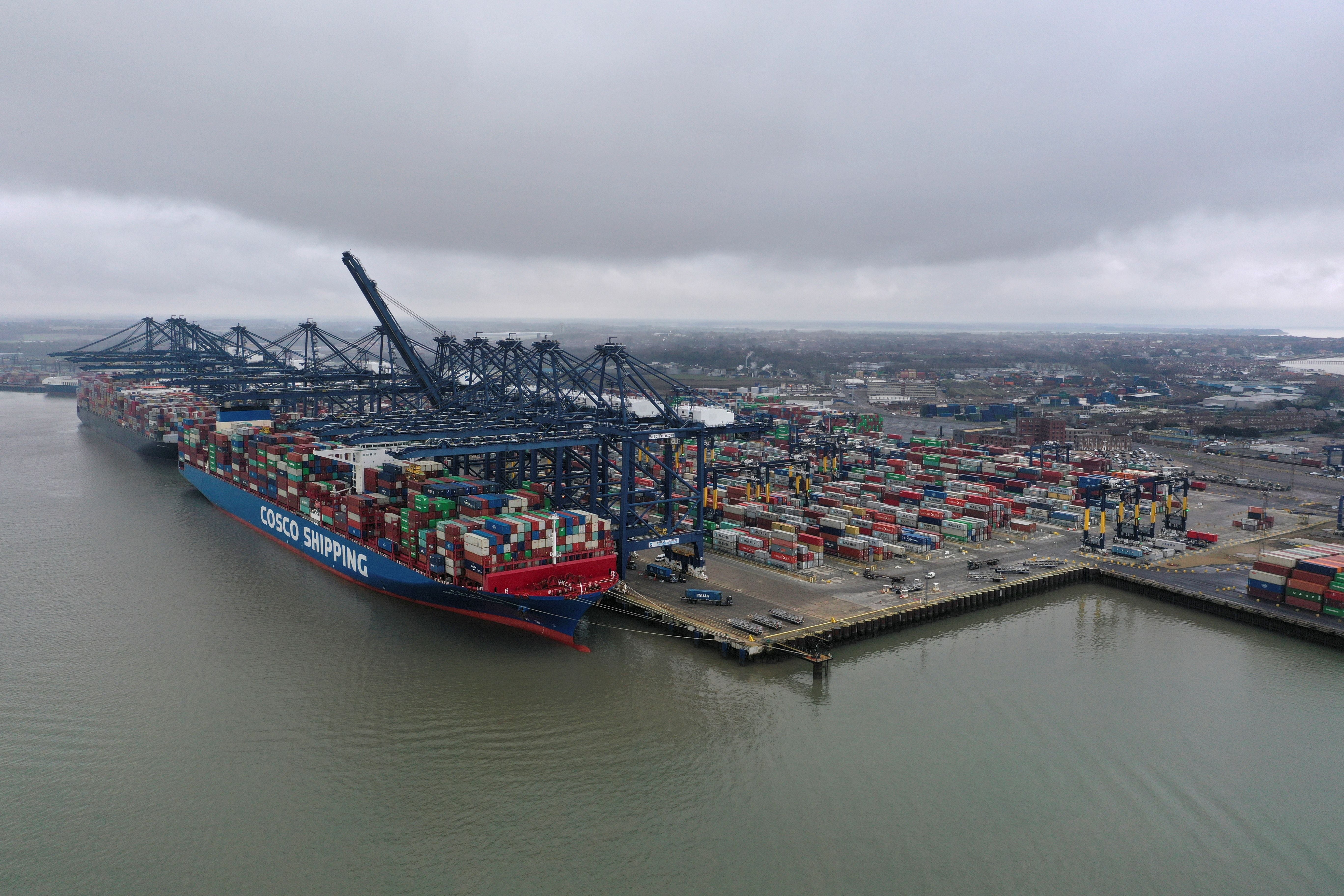We need to ignore all the distractions and talk about building back better
Never mind all this talk of Harry and Meghan, and statues, and cricketers’ offensive old tweets, we need to hold the government to account on building the country back post-pandemic – it starts with free ports, writes Chris Blackhurst


Daily, this government is trotting out statements and burbling statistics that simply go unchallenged. Too often, it’s not taken to task on the detail, not by an opposition that is the least effective I can recall; and not by much of the media who just share in the gushing.
Take free ports. I know, not the sexiest of subjects, but that’s the point. Compared with the latest Meghan and Harry drama or surging variants or a cricketer’s offensive old tweets for which he’s apologised or rows about paintings of the Queen or statues in university buildings, there’s little interest in one of the linchpins of the government’s plan for economic recovery. What’s it called? “Build Back Better”. Yes, but how exactly? “Move on now, don’t pour water on it, there’s a chap.”
Well free ports, that’s one way. They’re the special economic zones at seaports or airports. Goods are imported without attracting normal taxes and tariffs. Form-filling and customs procedures are kept to a minimum, and the items can be stored, remanufactured and re-exported, again all levy-free. It’s only when they move into the domestic country that red tape and duties apply.
They were trumpeted in the 2019 Conservative manifesto. The first in England were announced in the March 2021 budget: East Midlands airport, Felixstowe & Harwich, Humber, Liverpool City Region, Plymouth and South Devon, Solent, Teesside and Thames. They begin operating later this year.
Who championed the rollout? The chancellor, Rishi Sunak. This is the same Rishi Sunak who, as a little-known MP in 2016, wrote The Free Ports Opportunity. That paper was published by the free market think tank, Centre for Policy Studies and it contained the arresting claim that free ports in Britain will “create 86,000 jobs”.
That’s quite an assertion. But it’s also a precise figure, which should give rise to suspicion. Another clue, besides the exactness, was Sunak saying that if the UK’s free ports perform as well as those in the US, as well as the 86,000 new jobs they would reconnect Britain with its “proud maritime history” (that again) and allow Britain to capitalise on its new post-EU freedoms.
So where does it come from, this 86,000? Well, that’s what you get if you divide the number of people employed in US free zones (420,000) with those scheduled for England and adjusted to the smaller size of the UK population. It assumes that the same “agglomeration” effects enjoyed in the US would apply equally in the UK. Credit to the Centre for Progressive Policy for uncovering this, for exposing that Sunak did some simple back-of-an-envelope calculations or similar to come up with his exciting prediction.
There was no basis in reality for it. In case Sunak has not noticed, the US and UK differ hugely in size and scale. In its study of free ports, the charity TaxWatch quotes Professor Neil Lee from the London School of Economics as questioning the methodology, pointing out that “The agglomeration literature in the US tends to find relatively large effects. In the UK, everything is closer together so agglomeration is less important.”
There are concerns about tax evasion and money laundering, that the free ports, with their lax procedures and absence of levies, will become a magnet for criminals
Even so, Sunak’s forecast was bettered. Mace Group, the international consultancy and construction company, raised the expectation higher, estimating that free ports could boost trade by £12bn, provide 150,000 high quality jobs, and add £9bn to the UK economy.
Mace reckoned that all 150,000 would be new, they would not exist but for the free ports. This takes no account of how many of these posts would be moving from elsewhere as their employers relocate to take advantage of the attractions a free port has to offer.
The experience we have with enterprise zones, the nearest current equivalent to free ports, suggests that will be the case. Enterprise zones were themselves a spin-off from free ports. You see, we had free ports in Britain before, in Birmingham, Belfast, Cardiff, Liverpool, Prestwick and Southampton. They did not exactly fulfil a transformative role then.
The government signalled their demise in 2012 when it stopped renewing their licences. They were replaced by enterprise zones. Businesses relocating to these areas were entitled to a total exemption from business rates for five years and perks designed to help them buy equipment and machinery. Our free ports and enterprise zones had to stick within EU rules. Now, it’s different. As Sunak said, post-Brexit the shackles are off.
There are concerns about tax evasion and money laundering, that the free ports, with their lax procedures and absence of levies, will become a magnet for criminals. But, as ministers and their cheerleaders (who include leaders of councils around the free ports) would say, I am raising negatives, a killjoy where the Build Back Better Bonanza is concerned.
No one would be more delighted if they succeed. But I am also wary of politicians who make claims based on linking things aren’t the same, on comparing countries that are not similar, to serve their agenda. Woe betide they are in the business of giving false hope, of issuing promises that are believed, because people want to believe, and cannot be met.
Join our commenting forum
Join thought-provoking conversations, follow other Independent readers and see their replies
Comments